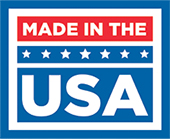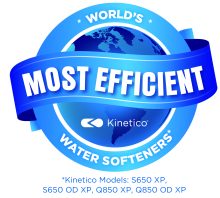The Hidden Costs of Hard Water: Why Investing in a Water Softener Makes Sense
Do you ever wonder why your plumbing needs frequent attention or why your appliances seem to break down sooner than expected? The culprit might just be hard water because it’s a silent problem that impacts your home in more ways than you might realize. But as it says, there is always a solution to every problem. Investing in a water softener could save you from these headaches and even lower your long-term expenses. Let’s explore how. But, before that, let’s understand.
What Is Hard Water, and Why Is It a Problem?
Hard water contains high levels of minerals like calcium and magnesium. While these minerals aren’t harmful to your health, they wreak havoc on your home’s plumbing, appliances, and overall efficiency. Over time, these minerals build up as limescale deposits in pipes, water heaters, and other appliances. This buildup leads to clogs, reduced efficiency, and expensive repairs or replacements.
The Hidden Costs of Hard Water
1. Plumbing Issues
Hard water deposits narrow your pipes over time, reducing water flow and increasing water pressure. This added strain on your plumbing system can lead to expensive leaks or bursts, as well as the inconvenience of managing water damage in your home.
2. Appliance Wear and Tear
Appliances like dishwashers, washing machines, and water heaters are particularly vulnerable to hard water damage. Limescale buildup forces these devices to work harder and reduce their lifespan. For instance, a water heater affected by limescale may require more energy to heat water which results in higher utility bills.
3. Energy Inefficiency
When it comes to utility bills, hard water directly impacts your energy efficiency. When your water heater or dishwasher struggles due to mineral buildup, it uses more energy to perform basic functions. This inefficiency increases your monthly expenses and your carbon footprint.
4. Maintenance and Repairs
Constantly replacing showerheads, unclogging faucets, and repairing appliances might feel like part of homeownership, but these frequent issues often indicate hard water problems. Over time, these small expenses add up and create a financial burden.
Why a Water Softener is a Smart Investment
Installing a water softener is the easiest and most effective way to combat the effects of hard water. Here’s how it can transform your home and save you money:
1. Extends Appliance Lifespan
A water softener helps your appliances operate smoothly and last longer by removing the minerals responsible for limescale. This means fewer replacements and less money spent on repairs.
2. Reduces Maintenance Needs
With soft water, you won’t have to deal with clogged pipes or mineral buildup in your appliances. This significantly reduces the time and money you spend on maintenance.
3. Improves Water Quality
Soft water feels better on your skin and hair, prevents soap scum in your bathroom, and keeps your clothes softer and brighter after washing. These seemingly small improvements improve your daily life in noticeable ways.
4. Saves Energy
Soft water allows your appliances to operate at peak efficiency while reducing energy consumption. For example, your water heater will require less energy to heat water, which lowers your monthly bills.
How to Identify Hard Water Problems
Not sure if you have hard water? Here are some signs to watch for:
- White, chalky deposits on faucets and showerheads.
- Soap that doesn’t lather well.
- Spots or residue on dishes after washing.
- Dry skin and dull hair after showers.
- Frequent plumbing issues or appliance breakdowns.
If any of these sound familiar, it’s time to take action.
Why Choose Rabb Water’s Solutions?
Rabb Water offers industry-leading solutions to tackle hard water problems effectively. Our water softeners are designed to fit the unique needs of your home, providing long-term savings and convenience. With a water softener from Rabb Water, you can:
- Protect your plumbing and appliances.
- Reduce your utility bills.
- Enjoy softer, cleaner water every day.
Plus, our experts can help you choose the best water softener Lafayette for your home. Our professional installation and exceptional customer service ensure you’ll see the benefits immediately.
Say Goodbye to Hard Water Hassles
Hard water might seem minor, but its hidden costs can add up quickly. Investing in a water softener Lafayette IN solution from Rabb Water eliminates these issues and brings comfort, efficiency, and long-term savings to your home.
Don’t wait for hard water to take a toll on your household. Contact us today and make the smart choice for your family and your budget.




